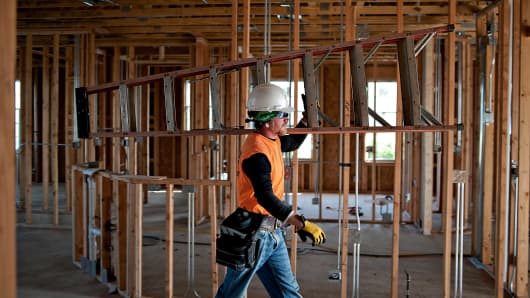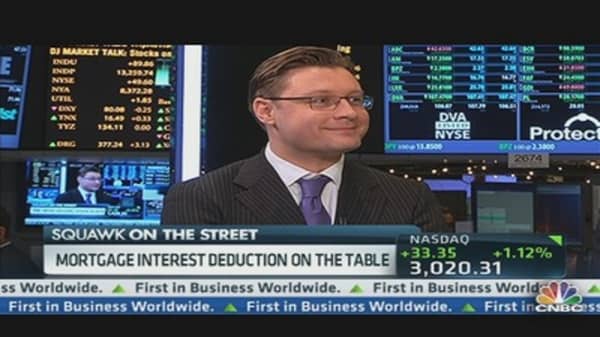Buoyed by a nascent housing recovery, homebuilder stocks have risen dramatically this year — a positive trend that one analyst forecasts will continue, provided the mortgage interest rate deduction isn't eliminated, a move that he says could be "catastrophic."
"It's been a terrific year for the homebuilders," said Robert Wetenhall, an analyst at RBC Capital Markets. "We think we're still in the third inning – we're not in the seventh inning — both for the fundamentals and the stocks."
Despite a roughly 90-percent rise in homebuilder stocks year to date, RBC forecasts in a new research report that the sector will post another 30 percent of upside in the coming year.
Wetenhall expects tight inventory levels, low interest rates and a stable pricing environment to "drive demand very substantially next year." This should drive not only a 22 percent rise in new residential construction starts but also a recovery in repair and remodeling sales, according to the report.
"We see a number of stocks doing well who cater to that market next year like Lennar, like Pulte," he told CNBC's "Squawk on the Street." "Toll's going to do well and so will KB Home. We also see market share gains with the public builders, and our big call is that the sand states will show strength – Arizona, California, Nevada and Florida."





